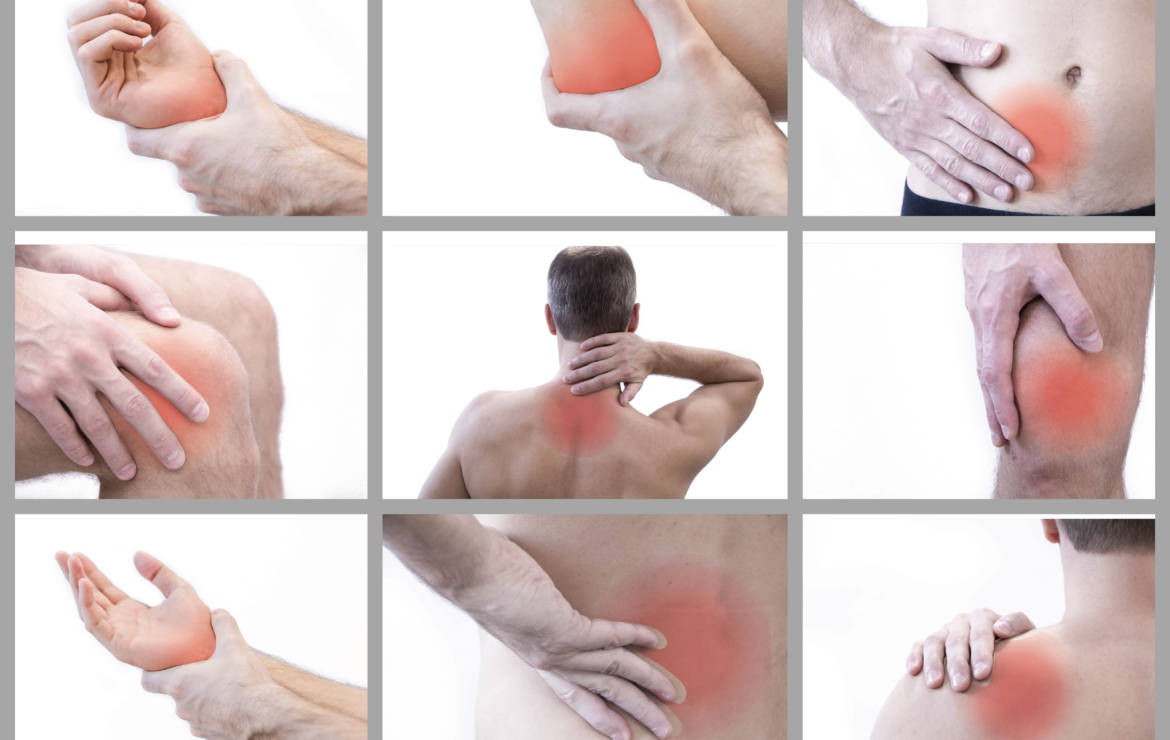At this time of the year when temperatures fall, days are shorter and we can become less active we can sometimes feel a little bit stiff and get the odd aches and pains. For a high percentage of the population though inflammation and pain is an everyday problem. Inflammation is an essential protective response induced by the body to help eliminate chemical toxins or foreign invaders, or as part of the repair process following physical injury. Unfortunately, this essential and protective inflammatory process can become excessive or out of control, and this is when delayed healing or chronic, painful inflammatory conditions can occur. The British Pain Society has instigated research that has revealed truly astonishing results. Chronic pain affects more than two fifths of the UK population, meaning that around 28 million adults are living with pain that has lasted for three months or longer. More adults aged 75 and over experienced pain than those 18-25.
With an ageing population, it is likely that the prevalence of chronic pain will increase and the need for pain management and relief will grow. A case could be made that health services across the world need to do more to meet the needs of people with chronic pain. While it may not be life-threatening, chronic pain can cause considerable distress and adversely affect mental health.
Current advice for chronic pain is to use a combination of physical exercise and painkillers to relieve pain. Psychological therapies, such as cognitive behavioural therapy, can also help people cope better with quality of life issue.
Conventional medical treatment for pain and inflammatory health problems often involves NSAIDs (Non-steroidal anti-inflammatory drugs) which are unfortunately associated with adverse effects. There is widespread need for safer natural therapeutics to support balanced inflammation and manage chronic pain without adverse effects.
Unfortunately, a typical Western diet and lifestyle is loaded with triggers that encourage inflammation to persist beyond what is helpful. There are many diet and lifestyle factors that have a calming effect on inflammatory processes. Simple lifestyle and dietary choices such as eating more oily fish high in Omega 3 and colorful fruit and vegetables, drinking more water, being more active, getting plenty of sleep and a healthy gut bacteria can support your body’s anti-inflammatory processes. Whilst pro-inflammatory triggers such as eating a diet high in processed food and sugar alongside inactivity, chronic stress, poor gut health, toxins such as smoking, alcohol and household chemicals should be avoided.
KEY ANTI-INFLAMMATORY NUTRIENTS AND PHYTOCHEMICALS
Curcumin – The main active component of turmeric, curcumin has widespread anti-inflammatory and antioxidant activity, and has been extensively studied in a wide range of chronic diseases. Curcumin is notoriously difficult to absorb however, so is best delivered in micellar supplement form as this has been shown to be 85 times more powerful than normal powdered curcumin.
Vitamin D – Many people are low in vitamin D and a large body of research has demonstrated anti-inflammatory effects of vitamin D.
Omega 3 – Typical Western diets, high in omega-6 and low in omega-3 fats contribute to a wide range of illnesses characterised by pain and inflammation. A daily supplement of high quality omega-3 fish oil can help to reduce inflammation and support a healthier balance
Pain experts may advise a course of Physical therapy treatment. This should help you to move better, relieve your pain and daily tasks and activities like walking, going up stairs or getting in and out of bed easier. Physical therapy for persistent pain may involve manipulation, stretching exercises and pain-relief exercises.
Physical therapy is usually delivered by a physiotherapist, chiropractor or osteopath, or in some cases, an occupational therapist. Physiotherapists can give advice on the right type of exercise and activity. Occupational therapists can support you with environmental changes that could help you remain in work and function better at home.
The important factor to remember is to learn how to adapt your life to manage your pain. Many people also find mindfulness meditation exercises beneficial and therapy’s such as acupuncture.
Please do not make any changes to your diet or take Food supplements without consulting a health professional first

Add Comment